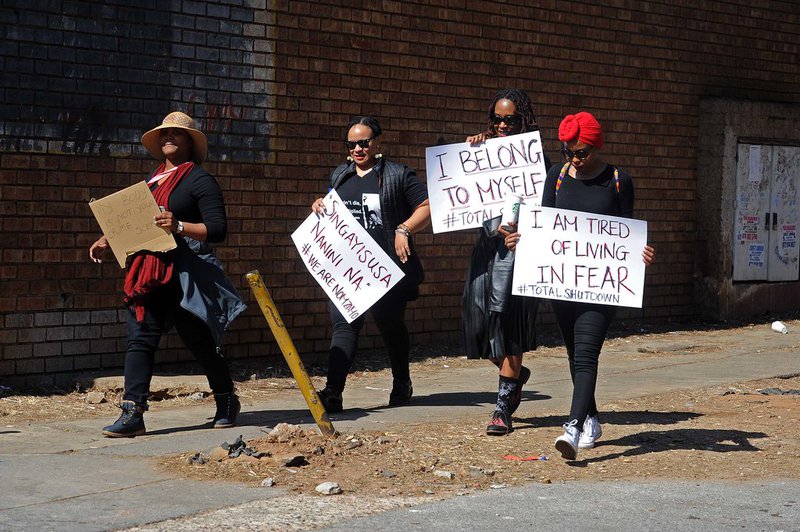Women's Day: Reflections on the progress made in fighting GBV
Updated | By Gaopalelwe Phalaetsile
In August 2018, thousands of women across the country marched under the banner ‘The Total Shutdown Against Gender-Based Violence’.

The women taking part in the Gauteng leg of the march handed over a list of 24 demands to President Cyril Ramaphosa at the Union Buildings in Pretoria.
They gave Ramaphosa a raft of solutions, drawn up by women for women, which they believe will assist the state in dealing with the scourge of femicide, abuse against children, and members of the LGBTIQA+ community.
In September 2019, an emergency response plan to address gender violence and femicide was developed and presented to Parliament.
A total of R1,6 billion was prioritised for the battle.
A summit was subsequently held in November 2019, which set the tone for the drafting of the National Strategic Plan (NSP) for GBV and femicide.
Two years later, we ask four women who took part in that march if there is anything to celebrate on Womens Day 2020.
"For me, a celebration is when we have conquered this monster that patriarchy, masculinity, male patriarchy and misogyny and we are far from that. What these two years have done is to plant the seed and force the country to have uncomfortable conversations," said Advocate Brenda Madumise-Pajibo, a director at The Wise Collective.
Madumise-Pajibo says the fight against gender-based-violence continues.
"The fact that the emergency response plan was passed and R1.6 billion was set aside, monitored allocated well means something. The fact that we now have equipped victim empowerment centers and Thuthuzela care centres (rape crisis centers) are actually properly resourced and funded now, that is something we did not have in 2018. There are so many demands that were not met but a lot have been and that for me is the light at the end of the tunnel to some extent," adds director at Rise Up Against Gender-Based Violence Mandisa Khanyile.
Khanyile's organisation has been pivotal in assisting women who continue to face violence during the Covid-19 pandemic.
She says the challenges are still there and women continue to be killed, although the response mechanisms have improved.
"We took a private matter and made it a national point of emergency and that is powerful. Even if it is slow, it is happening, we have been able to shift perceptions and we are also challenging a very predominant narrative around silencing in South Africa. It would be very naive to say there have not been any tangible change," said Keitumetse Moutloatse, the founder of the Black Women Caucus.
Moutloatse says it is not enough for women to be watchdogs and keep the government accountable in dealing with GBV, but that they also to get involved and do strategic work.
"I welcome the NSP against gender-based violence exists. It is very affirming that all the years of activism that have taken place have borne fruit. We know that the document does not exist in a vacuum it was advocated for in 2014 by black women in this country and to finally see it come to pass on a legislative platform is amazing. But on a personal level I don't think much has changed," says Yolanda Dyantyi, the founder of The Archive: Amabali Wethu.
Dyantyi bemoans the economic challenges faced by women in South Africa, especially during the Covid-19 pandemic.
Show's Stories
-
Dad tries to have honest conversation with his 2-year-old
"I just wanted to have a conversation with you today...This morning you ...
The Workzone with Alex Jay 1 day, 7 hours ago -
Winter playground returns to Melrose Arch
Take the kids out this weekend, visit the Melrose Arch Winter playground...
The Workzone with Elana Afrika-Bredenkamp 1 day, 7 hours ago